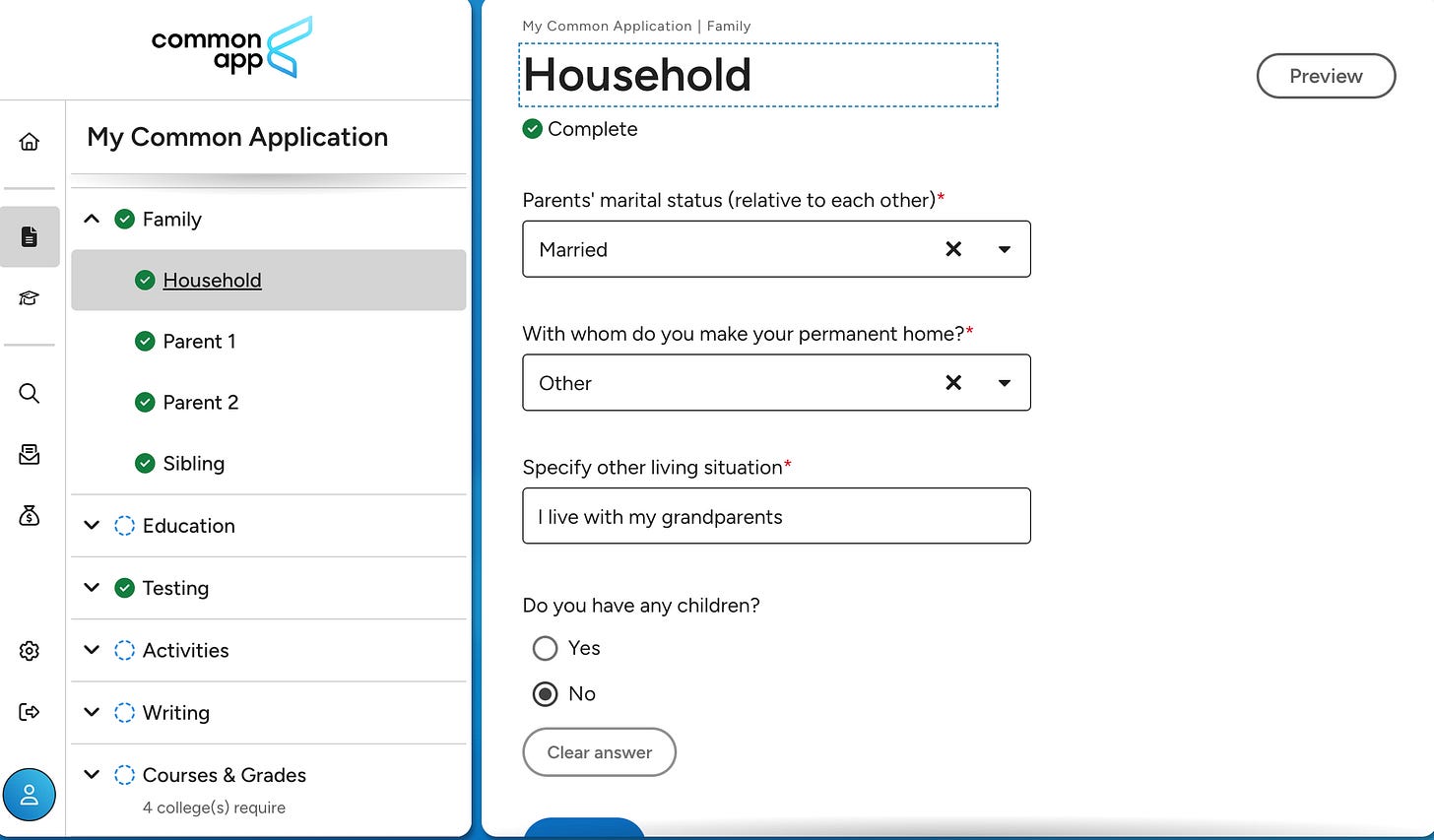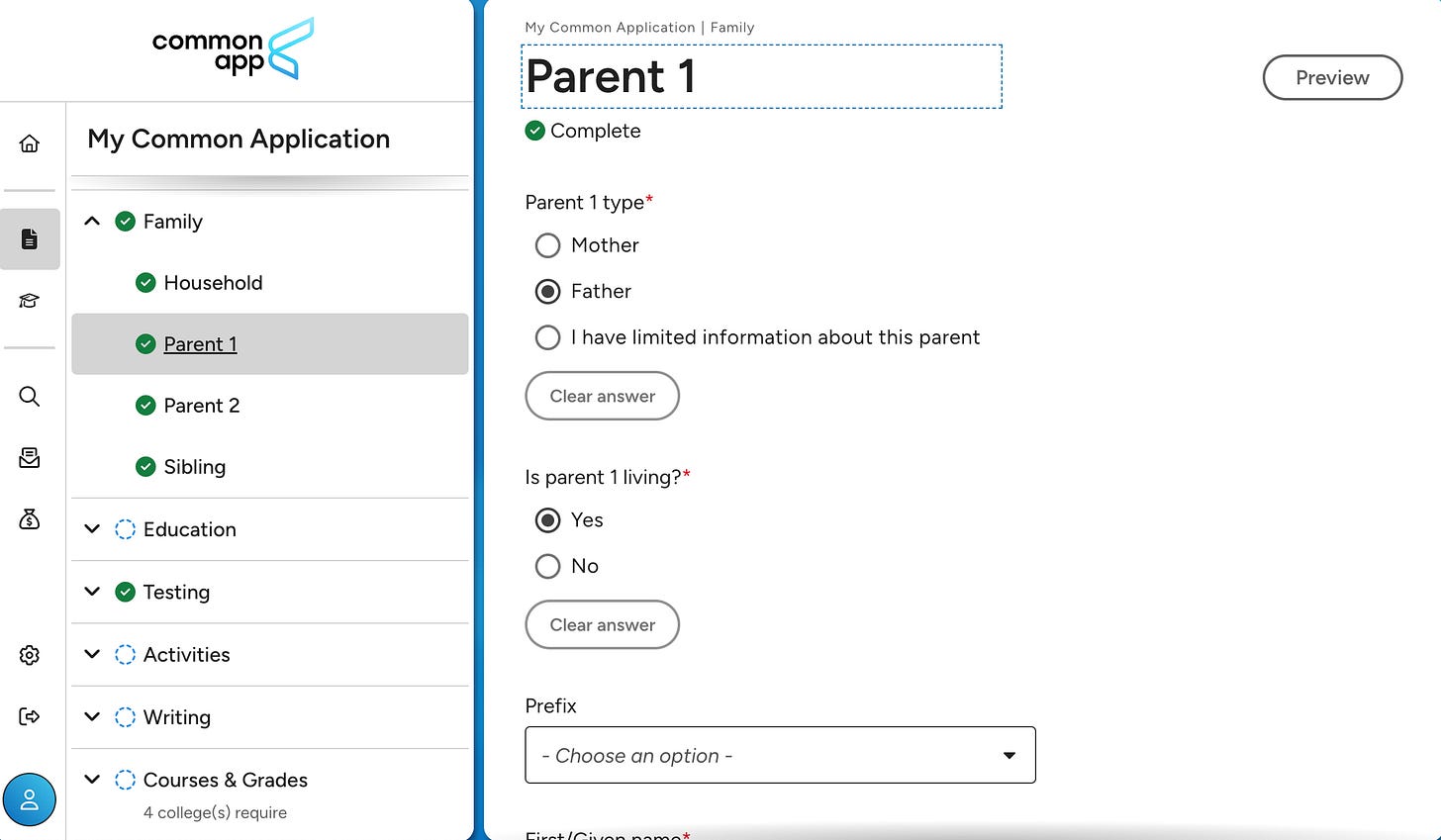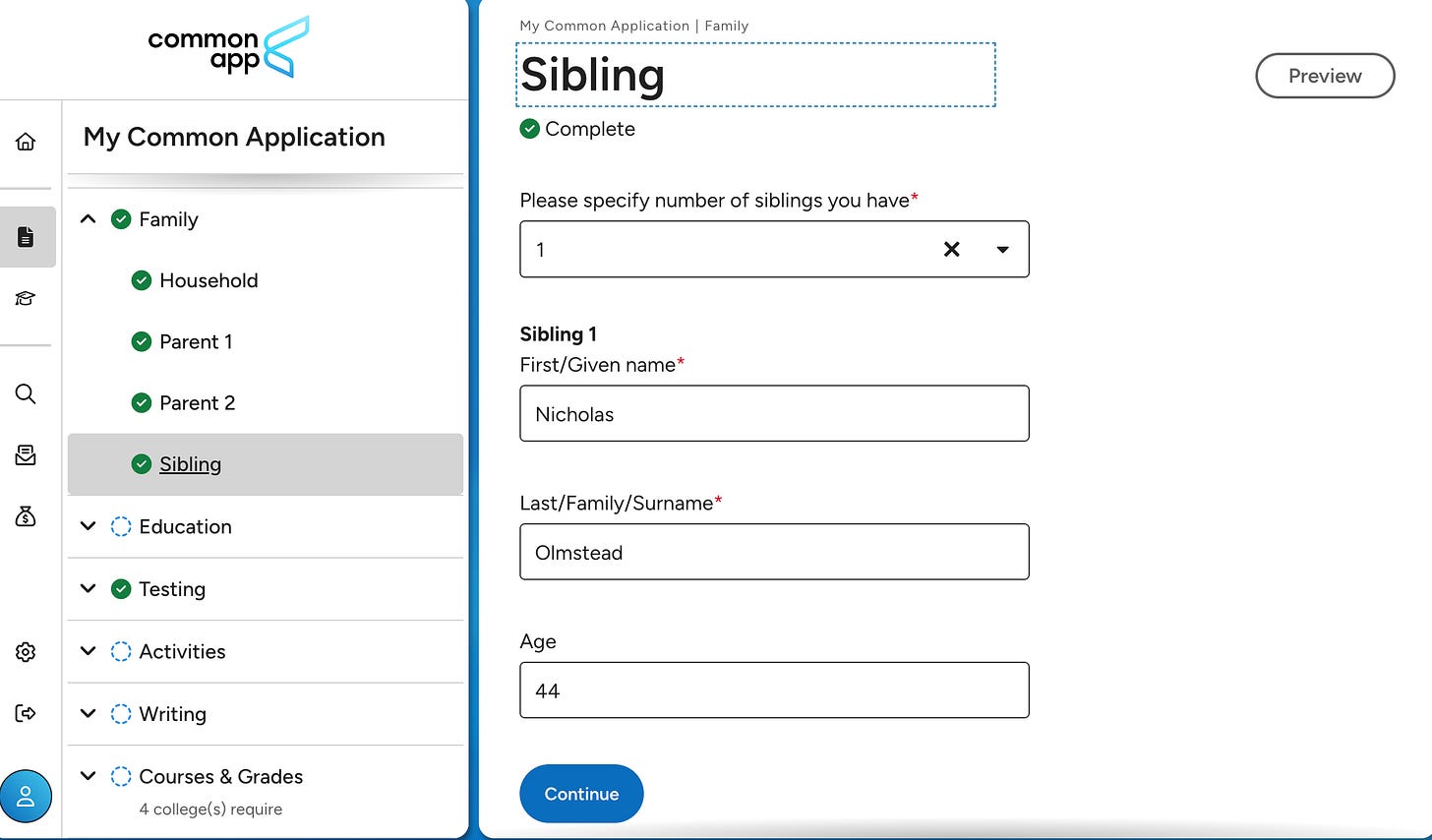Common App Section by Section - Family
Tips for accurately completing the Family section of the Common App and why it matters.
Family
In this section of the Common App you’ll be asked to provide information about who you live with - parent(s), guardian(s), sibling(s) - and any college or university they have attended.
Again, the standard guidance holds:
Always answer to the best of your ability, meaning: truthfully
This isn’t a tricky part of the app :). It should only take a few minutes to complete.
How does information about your family get used? Colleges are just looking to learn a bit more about you through the lens of your family circumstances.
Household
Indicate whether or not your parents are married and with whom you live. If your home situation is not listed, you can choose ‘other’ and then provide a bit more detail. For example, if you are currently living with a friend and their family, or an aunt or uncle or grandparent, ‘other’ would be an appropriate choice.
The question about children is asking whether you, the rising college student, have any children of your own.
Parent
I want to start by recognising that sometimes giving information about your family situation may be tricky.
The best way to complete this section accurately is to ask your parent. If your circumstances mean that you can’t do this, it’s certainly OK to choose the ‘I have limited information about this parent’ option. Doing so will NOT hurt your admissions chances. Similarly, if you have a parent that’s not really in the picture - meaning not just that you may not get along with them, but more that you rarely if ever see or receive assistance from them - it’s really your judgment as to whether or not to list them.
The most important part of this section is really the education information for each adult, which is used to determine whether or not you’re considered a first generation college student. A first generation student will be the first in their family to attend and graduate from college. (Side note - the exact definition of first generation can vary widely from college to college, but the Common App defines it as neither of your parents having *graduated* from college)
Why does first generation status matter? Being recognised can carry advantages in admissions, financial aid, and campus support.
First generation status is considered a “hook” - an additional item in your favour in college admissions decisions. Highly selective colleges and universities often view first-generation status as part of their commitments to diversity and access (and as a proxy for other demographic information that’s been restricted in recent court cases).
Colleges also understand that first generation students may lack knowledge and support when it comes to applying to college, and therefore can offer additional assistance in the form of financial aid packages and onboarding once enrolled. For example, Whitman College in my home state of Washington has created a specific peer mentor program (FG/WC Mentorship) for new first generation students where first gens are paired with, and receive ongoing support from, 3rd and 4th year students to help ensure onboarding and continued success in college.
If your parents have earned a college or post-graduate degree, select the name of the institution from the provided list. This is one way colleges can understand if you might have ties to a school - e.g. sibling or parent is a current or former student. If the college or university they attended is not listed, which may be the case for those whose parent attended school outside of the United States, simply type in the school’s name and location.
Oh, and BTW - it does not matter which adult guardian you choose to be Parent 1 or Parent 2.
Sibling
If you have brothers or sisters, list their name(s) and age(s) in this section.




